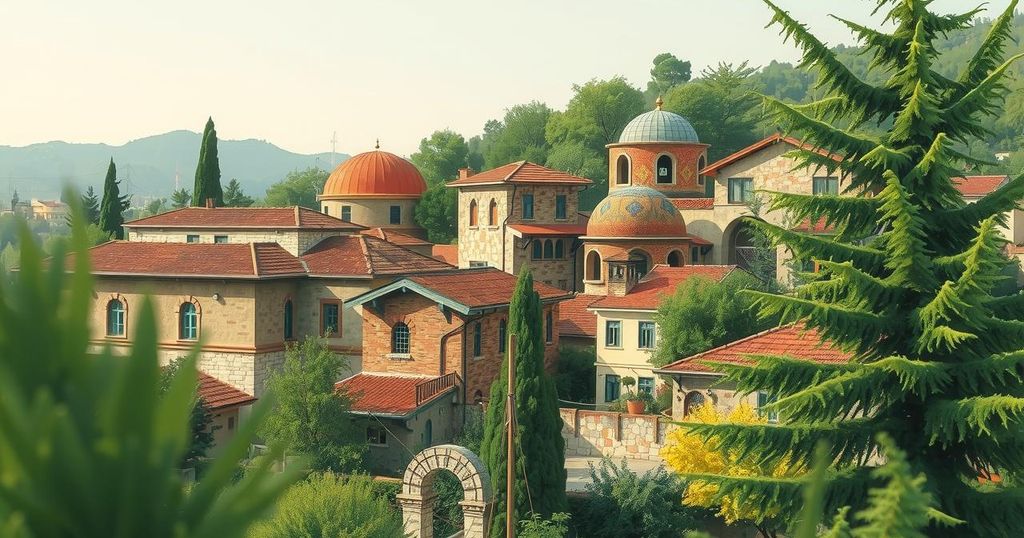Navigating Distrust: The Complex Peace Process in Turkey’s Kurdish Regions
Turkey’s ongoing peace process concerning its Kurdish population is fraught with distrust, primarily due to President Erdogan’s lack of clarity on reforms and military actions. Abdullah Ocalan’s call for disbandment prompted a ceasefire from the PKK, yet skepticism remains high due to political tensions, particularly following the arrest of Istanbul Mayor Ekrem Imamoglu. While recent developments indicate potential openness for dialogue, the path to sustainable peace necessitates transparency in government actions, military restraint, and genuine engagement with Kurds.
In Turkey’s Kurdish regions, there is growing distrust regarding the peace process initiated by President Tayyip Erdogan’s administration amidst ongoing political turmoil. The lack of transparency in terms of upcoming reforms post-conflict and Erdogan’s silence on substantial changes have heightened concerns among the Kurdish population, who have witnessed a long-standing struggle involving Kurdish militants and the state’s response. The successful execution of potential peace strategies is critical for Turkey’s political and economic stability.
The call for disbandment from Abdullah Ocalan, the imprisoned leader of the Kurdistan Workers Party (PKK), signifies a notable shift, as it came after an overture from an Erdogan ally. While the PKK responded with a ceasefire, clarity surrounding the democratic reforms needed to ensure sustainable peace remains elusive. The pro-Kurdish DEM Party is pressing for concrete democratization steps to accompany this peace initiative, stressing the importance of Ocalan’s involvement in disarmament processes.
Widespread skepticism persists among the Kurdish populace, particularly following the arrest of Istanbul Mayor Ekrem Imamoglu, which has reignited protests against Erdogan’s government. Cengiz Candar, a DEM lawmaker, voiced apprehensions about the peace process, acknowledging that expectations for success could realistically lead to disappointment. Engagement between the government and Kurdish representatives has been limited, which exacerbates uncertainty about the future of peace efforts.
The recent celebrations of the Newroz festival highlighted a moment of possible unity, with Erdogan suggesting it be recognized as a national holiday, coinciding with legislative proposals from DEM representatives. Historically, the festival has been a flashpoint for conflict, yet its recent commemoration illustrated hopes for a more collaborative relationship between the state and the Kurdish community.
However, Turkish air operations against the PKK persist, drawing ire from Kurdish leaders who demand that Ankara demonstrate earnest commitment to the peace process through military de-escalation. There are calls for Erdogan and the Turkish government to take genuine steps toward addressing the longstanding issues faced by the Kurdish population, which has historically felt marginalized.
Many locals remain skeptical about the peace process, with individuals expressing fears of repeated historical disappointments. Despite the AK Party’s leadership claiming to address injustices against Kurds, doubts linger about the government’s intentions and willingness to execute meaningful reforms.
Erdogan’s push for a new constitution poses another layer of complexity; it necessitates support from Kurdish factions but also risks backlash from nationalist segments of Turkish society. Discussions around redefining citizenship have emerged, although there remains official resistance. Some observers noted an apparent softening in Erdogan’s rhetoric towards the PKK leadership, suggesting that the peace initiative may evolve, despite the backdrop of arrests and legal disputes surrounding Kurdish politicians.
The situation in Turkey’s Kurdish region presents a complex landscape characterized by deep-seated distrust regarding the current peace process and initiatives for reform. While significant developments such as Ocalan’s call for disbandment and UAE Erdogan’s overtures toward national recognition during Newroz signify potential pathways forward, skepticism remains prevalent among Kurds. The necessity for transparency, genuine military de-escalation, and meaningful political engagement is paramount for reconciling historical grievances and paving the way for lasting peace. Ultimately, the future of the peace process hinges on the ability of Turkish leadership to navigate these intricate political dynamics and foster an environment of trust and collaboration with the Kurdish population.
Original Source: www.marketscreener.com




Post Comment